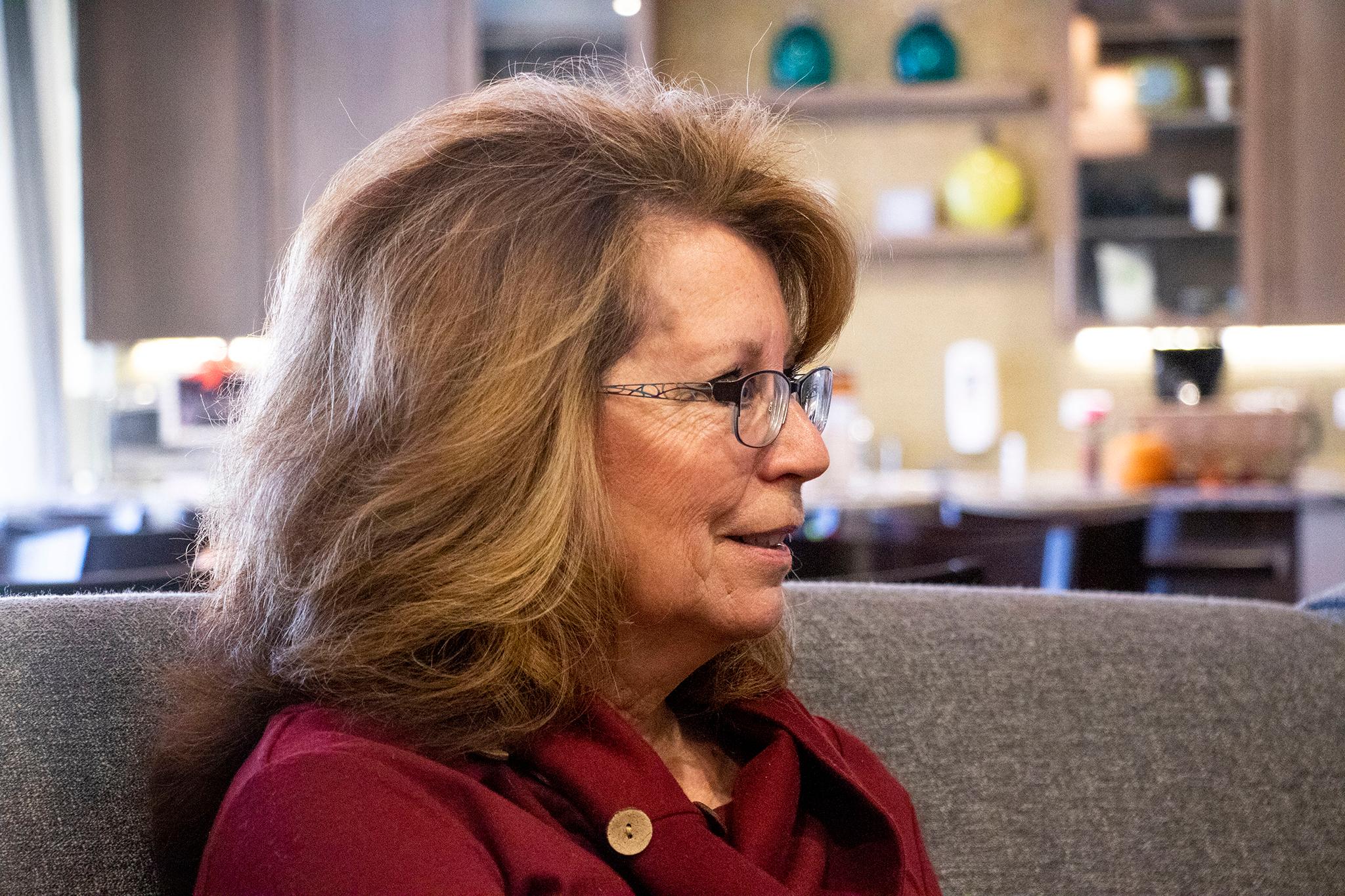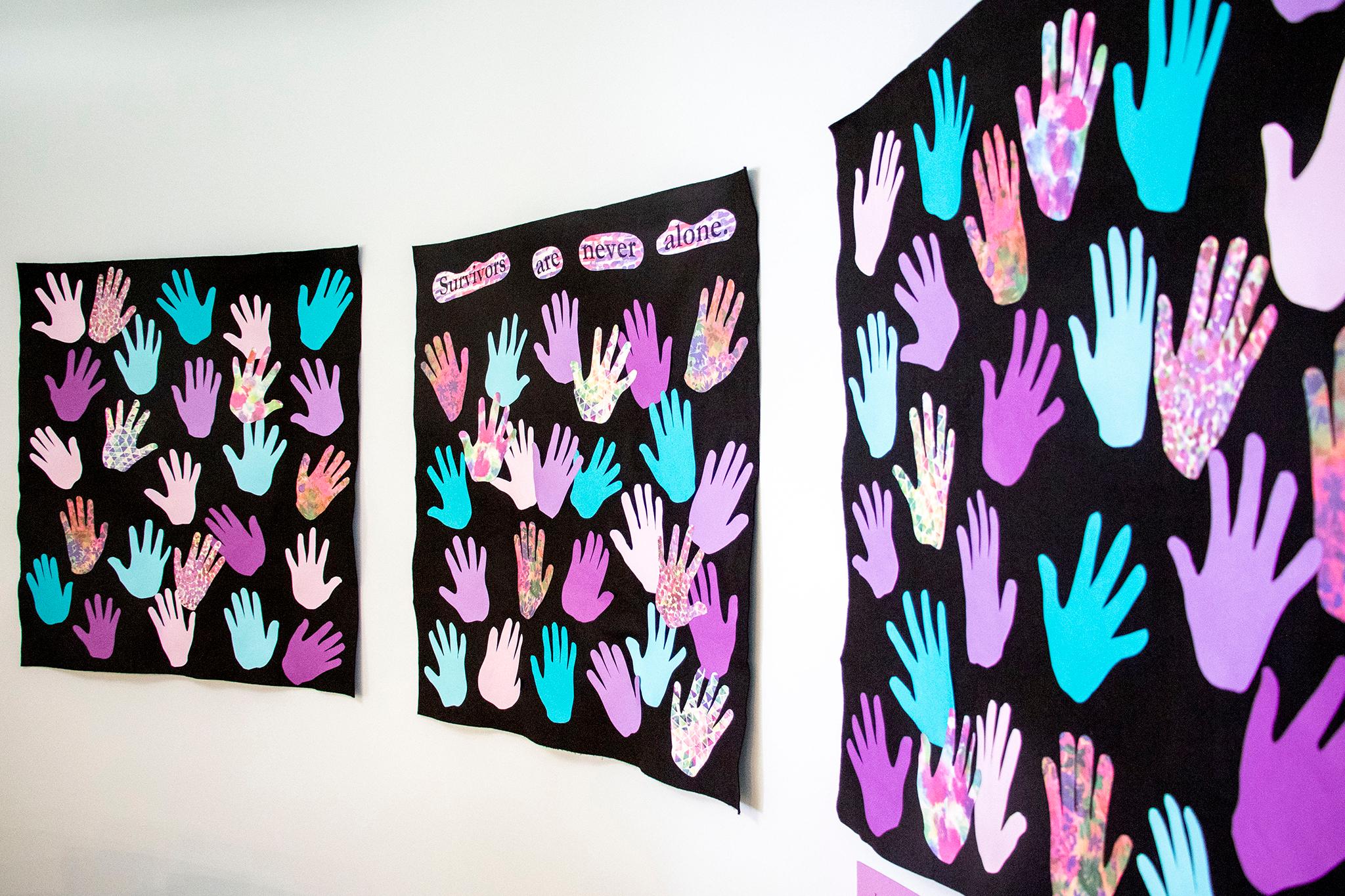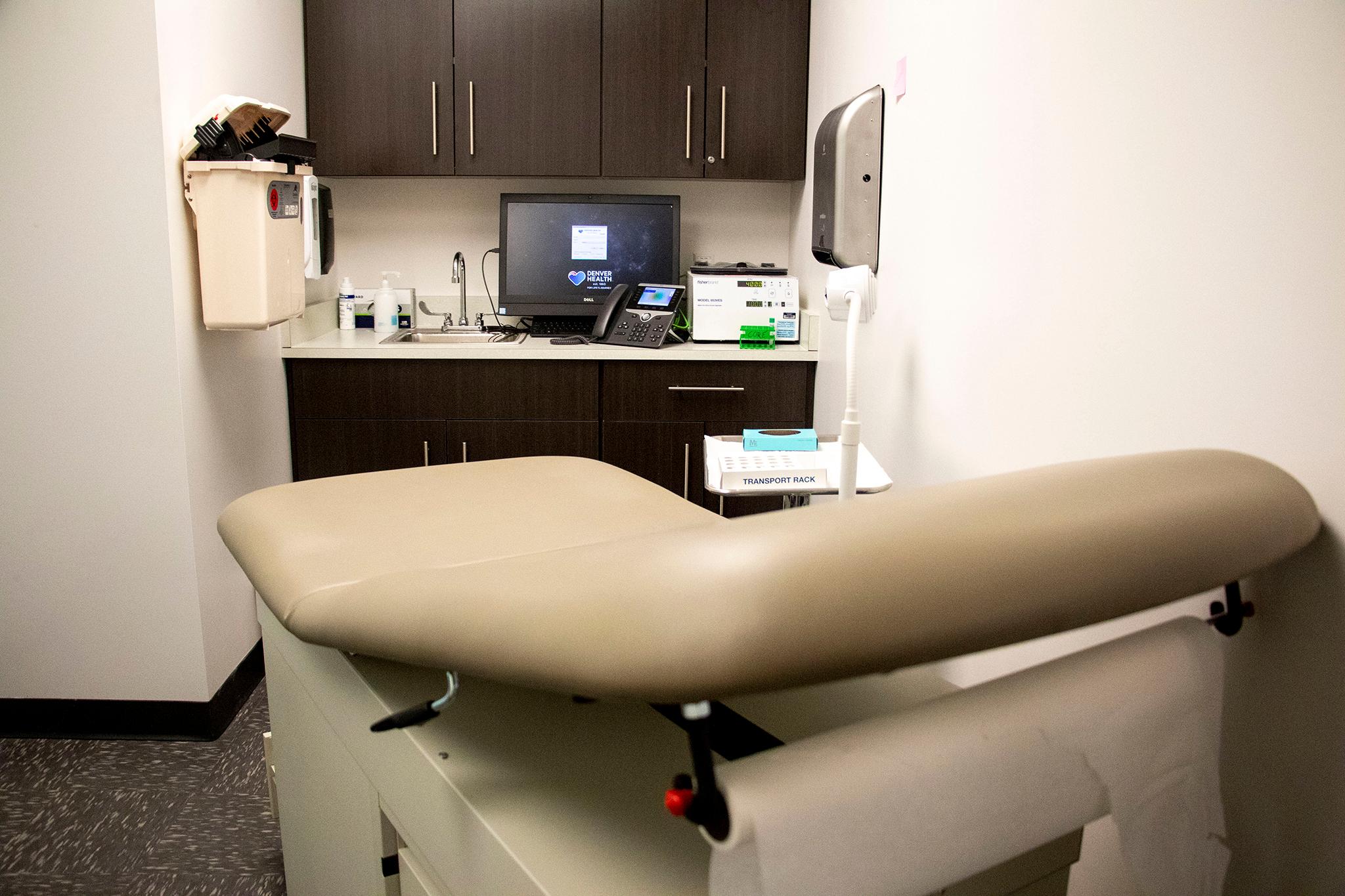Margaret Abrams' vision for the Rose Andom Center always included a health clinic.
Her hope for the domestic violence victim support center is now a reality after a ribbon-cutting ceremony made the new health clinic official this week. Abrams is the center's executive director.
"Before we opened, I was really adamant that we needed a healthcare provider," Abrams said. "I've worked with domestic violence victims for years. I am always amazed at how many of them have not gotten any kind of medical treatment following an assault."
Denver Health medical professionals will staff the health center.
The new clinic makes Rose Andom one of few family justice centers in the country to have an in-house clinic providing primary health services for women and children. Its addition beefs up services available to victims, which Rose Andom provides in partnership with more than 20 public and nonprofit agencies including the Denver District Attorney's Office, SafeHouse Denver, Servicios de la Raza and the Denver Police Department.
One family nurse practitioner, a medical assistant and a social worker will staff the center. A part-time certified nurse-midwife will also be on hand. The clinic is on the third floor of 1330 Fox St. It includes two exam rooms, space for staff and a yet-to-be-completed lab. Abrams said the health services are free or low-cost, depending on the situation. Uninsured and undocumented people are welcome.
This space had been empty since Rose Andom opened in June 2016.
"Our main campus has been providing care for clients of the Rose Andom Center since it first opened, and we are now able to provide health services into the single, central location where all of the other client resources are already housed," Denver Health CEO Robin Wittenstein said in a release this week.
The services at the clinic will include pediatric sick visits, pap smears, pregnancy testing, STI screening and on-sight behavioral counseling.

Franki Behnke is the family nurse practitioner at the clinic, which means she can provide primary care for adults and children. Behnke has a background in women's health and has seen first-hand how domestic violence hurts women. She remembers seeing victims who were afraid to get medical attention or were not getting sufficient treatment.
"In reality, there is domestic violence going on and we want to be able to make it a comfortable place for them to come," Behnke said.
Abrams said they expect a third of their patients to use the clinic.
The clinic had a soft opening in June. Between then and October, it has seen 80 patients while the center as a whole has treated 1,400 people this year, which is higher than 2018's total.
"Patients have given us really good feedback about how much they're being helped," Behnke said. "They feel like it's the first place where they feel like they're really being listened to."
The clinic will help women avoid uncomfortable situations because some victims don't seek medical care to avoid discussing an assault with a family doctor or medical center, Abrams said. It can also provide immediate services following assaults -- which Abrams said it's already done -- and provide medical treatment and assessment for potential injuries like strangulation.
"It's not something that gets a lot of medical attention," Abrams said. "So many victims are like, 'Yes I was strangled, I thought I was going to die, then I didn't, so I must be okay.' They don't really realize the complications that can occur as a result of that."

This summer, Abrams said the clinic helped a woman who was seven months pregnant and had not received any prenatal care. The woman was having severe complications and ended up being admitted to Denver Health. She delivered the child later that week (Abrams said they're both doing okay since).
"Without that medical care, that probably would not be the case," Abrams said.
With this week's launch and with media coverage, Abrams said she hopes more women who might benefit from the clinic learn about its services. She said most people who have learned about it have said they were pleasantly surprised to see it available.
The clinic will accept both insured and uninsured victims, as well as undocumented residents. It was completed with money from a two-year grant from the Colorado Health Foundation.














